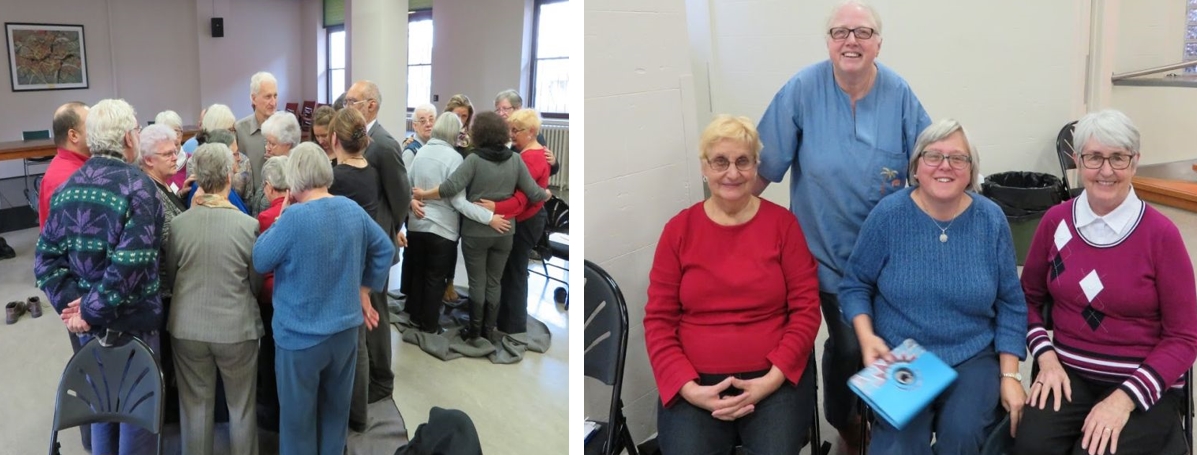Revealing simulation exercises
The participants in this education and awareness day were called upon to take part in two specific exercises that could be taken home and repeated with those around them.
The first was an invitation to place themselves in the shoes of a refugee, with the obligation to quickly choose 10 belongings that they deemed crucial to bring with them when fleeing. What items would you choose? Then, the animators asked the participants to eliminate four of them. And finally, of the remaining six articles, they could only keep three of them!
As pointed out by Julie Tétreault, a co-worker in the SNJM Missions Sector, "There were no right answers since each case was different. Regardless, this was a good illustration of the initial shock experienced by these refugees who, let us not forget, must react swiftly, in a hostile environment.
Facilitator Norbert Piché then led the members of the assembly to choose one of the following three starting points:
• Leave for a perilous journey with all the dangers involved, keeping in mind smugglers and the intense uncertainty...
• Opt for a temporary refugee camp with the dangers of rape, AIDS, infections, extreme heat, and without proper sanitation, etc.
• To settle in urban areas with the risk of exploitation and discrimination, and with no possibility of quickly obtaining a work permit, etc.
For each option, two people from the group agreed to play the role of these refugees as they leave everything behind.
An emotional experience
At the same time as these people were playing their role, in each group there was testimony from refugees who had actually experienced these various options. Their stories became more concrete, more touching while giving weight to the simulation experience. As evidenced by Julie Tétreault, it was, to say the least, intense.
“It was very moving. I felt alone, abandoned, and my life had little value. I was feeling desperate. "
During the second part of the meeting, there was testimony from Miriam, a refugee originating from Syria and from Jean-Marie, the lone survivor from his family, following the Rwanda genocide.
« Migration is not a problem but a solution »
In his presentation, Jean-Claude Icart, from l’Institut d’études internationales de Montréal (Montreal Institute for International Studies) gave the participants ample information on migration issues and on possible solutions.
He spoke about people being victims of the dreadful conditions of their environment and of being stateless. He also highlighted the draft of the "Global Compact on Migrants and Refugees", planned for 2018 at the UNO, from which the United States has recently withdrawn.
From the wealth of information revealed during this meeting, a sentence from the Secretary General of the UNO, Antonio Guterres, really resonated with the group from the Mission Sector. “Migration is a pressing global issue that should not be viewed solely as a problem, but rather as a potential solution to many of the challenges we face today. It is inevitable and will not stop."
Among the participants, in addition to Julie Tétreault, were the following representatives from the Mission Sector: Sr. Jacqueline Aubry, Sr. Hélène Harvey and Miquelina Salva, secretary.
Group photo: From left to right, we see Miquelina Salva, Hélène Harvey, Julie Tétreault and Jacqueline Aubry

